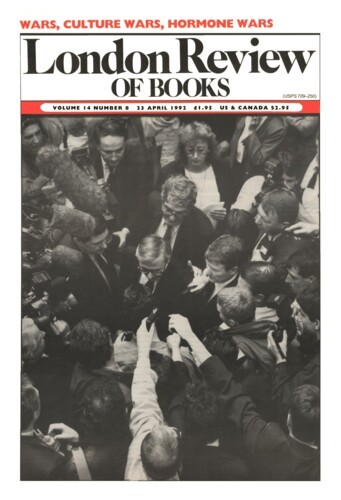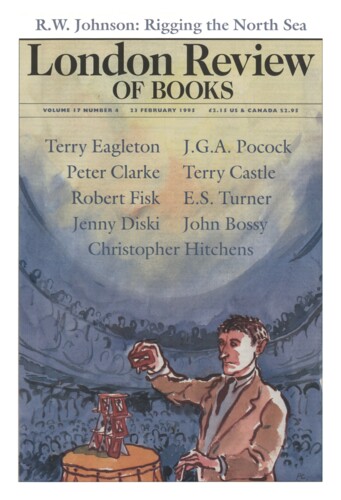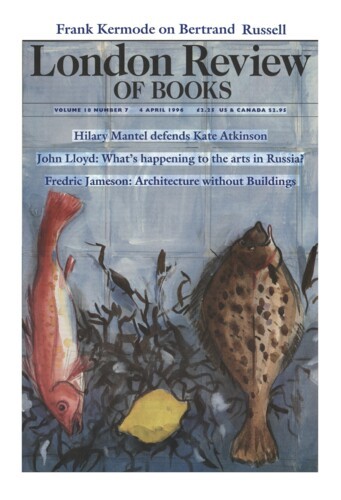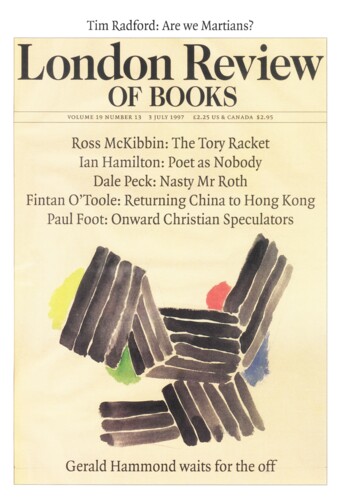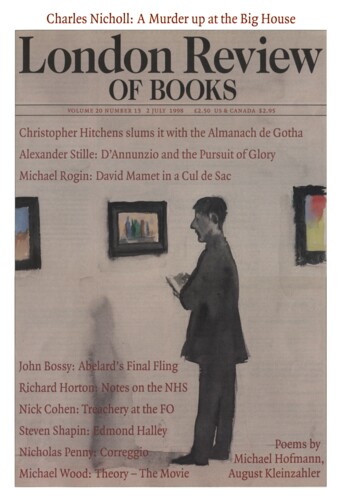Application for Funding
John Bossy, 23 April 1992
Francis Bacon has had a variety of reputations, which have tended to go up and down in a random or independent sort of way. At the moment he is generally regarded as a master of English rhetoric, an unsuccessful reformer of natural philosophy, and a cold fish. Julian Martin has tried to put him together, not by a lumping biography, but by finding the crux. His title is clumsy, but he is a good read, has an excellent point to make, and makes it successfully. His line is that it has been impossible to get at the inwardness of Bacon because of the radical division between writers who are interested in the history of science or philosophy, in Jacobean politics, and in the advancement of English prose. His method of dealing with this is to engineer a restoration of proper categories, where ‘science’ is not distinguished from ‘polities’, or indeed from the ‘arts’, if the construction of aphorisms is to be regarded as an art.
